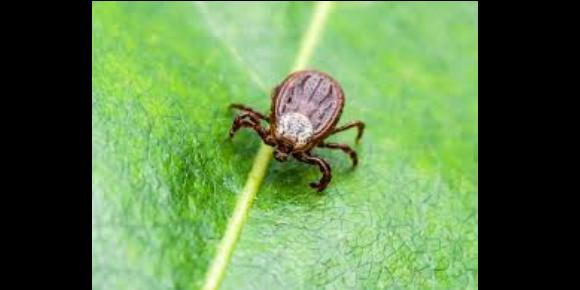March is Tick Awareness Month!

- posted: Mar. 02, 2020
Although it's hard to believe with the temperature swings we have had lately, spring IS right around the corner here in Regina and with the warmer temperatures, the tick life cycles become active again! At our hospital, March is the month where we emphasize the importance of tick prevention for your furry family members. The life cycle and species of ticks that we see here in Regina are starting change, especially with the unique weather patterns we have been having the past years in regards to spring thaw and with the increased travel of pets with their people!
This year, we recommend starting your pet on a tick preventative towards the middle-end of March. Last year our hospital participated in the National Tick Study and while we are still awaiting the final reports, we appreciated everyone's participation and have already gleaned some important information about what is happening in regards to ticks at our local level. We did see a small number of the black-legged Ixodes sp. of tick that can carry Lyme disease. One of them in particular that we saw at our hospital was found very early in the spring as opposed to the late fall which is more typical of that species. This reminds us that we need to be prepared EARLY in the season and have preventatives on board prior to our pet's usual exposure time.
Remember that in addition to protecting your pets, tick preventatives also help reduce the number of ticks that your pets bring into your household where they can potentially fall off and then feed on a human member of your family. Be sure to let our veterinarians know if you and your pet will be travelling outside of Saskatchewan this upcoming season as additional preventatives (different tick species and/or heartworm) may be needed depending on the geographical area you will be going to.
As always, if you have any additional questions or concerns regarding tick prevention, our team is always ready to help and can be reached at 306-789-0918. We are also still accepting submission of live or dead ticks found on your pets up until the end of March 2020 as part of the National Tick Survey.
For additional reading on lyme disease please visit our previous blog at https://www.wascanaanimalhospital.ca/blog/110609-lyme-disease_2
For additional general tick information please visit https://www.wascanaanimalhospital.ca/blog/71082-ticks-will-soon-be-crawling-back

- posted: Mar. 02, 2020
Although it's hard to believe with the temperature swings we have had lately, spring IS right around the corner here in Regina and with the warmer temperatures, the tick life cycles become active again! At our hospital, March is the month where we emphasize the importance of tick prevention for your furry family members. The life cycle and species of ticks that we see here in Regina are starting change, especially with the unique weather patterns we have been having the past years in regards to spring thaw and with the increased travel of pets with their people!
This year, we recommend starting your pet on a tick preventative towards the middle-end of March. Last year our hospital participated in the National Tick Study and while we are still awaiting the final reports, we appreciated everyone's participation and have already gleaned some important information about what is happening in regards to ticks at our local level. We did see a small number of the black-legged Ixodes sp. of tick that can carry Lyme disease. One of them in particular that we saw at our hospital was found very early in the spring as opposed to the late fall which is more typical of that species. This reminds us that we need to be prepared EARLY in the season and have preventatives on board prior to our pet's usual exposure time.
Remember that in addition to protecting your pets, tick preventatives also help reduce the number of ticks that your pets bring into your household where they can potentially fall off and then feed on a human member of your family. Be sure to let our veterinarians know if you and your pet will be travelling outside of Saskatchewan this upcoming season as additional preventatives (different tick species and/or heartworm) may be needed depending on the geographical area you will be going to.
As always, if you have any additional questions or concerns regarding tick prevention, our team is always ready to help and can be reached at 306-789-0918. We are also still accepting submission of live or dead ticks found on your pets up until the end of March 2020 as part of the National Tick Survey.
For additional reading on lyme disease please visit our previous blog at https://www.wascanaanimalhospital.ca/blog/110609-lyme-disease_2
For additional general tick information please visit https://www.wascanaanimalhospital.ca/blog/71082-ticks-will-soon-be-crawling-back
Visit our Office
3259 Eastgate Drive
Regina, Saskatchewan S4Z1A4
